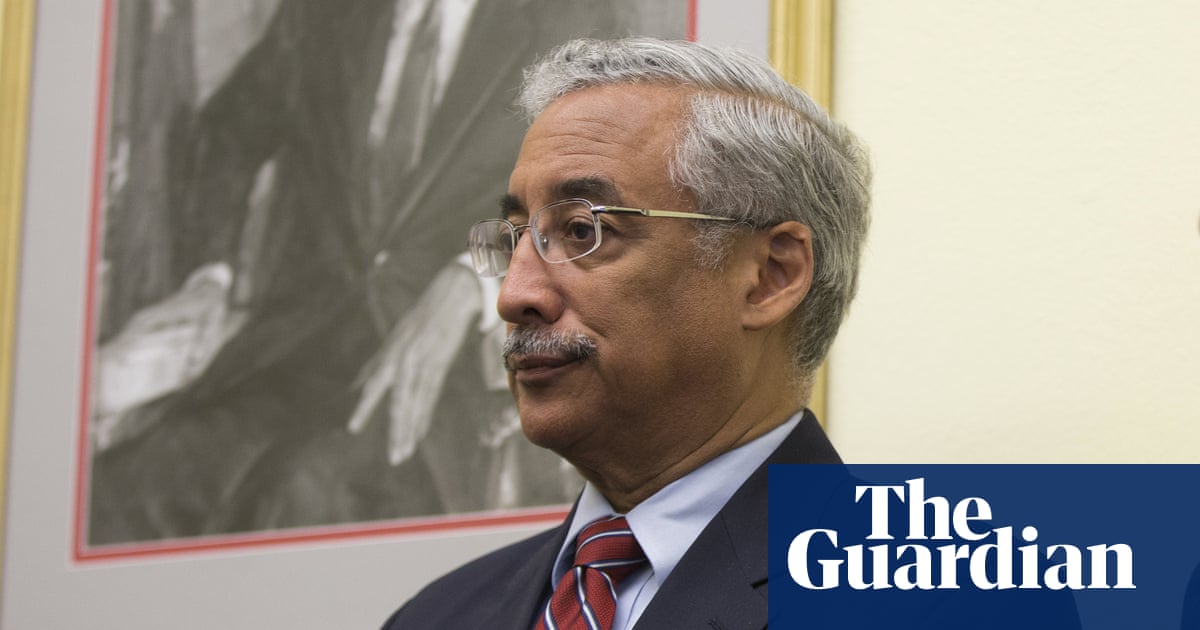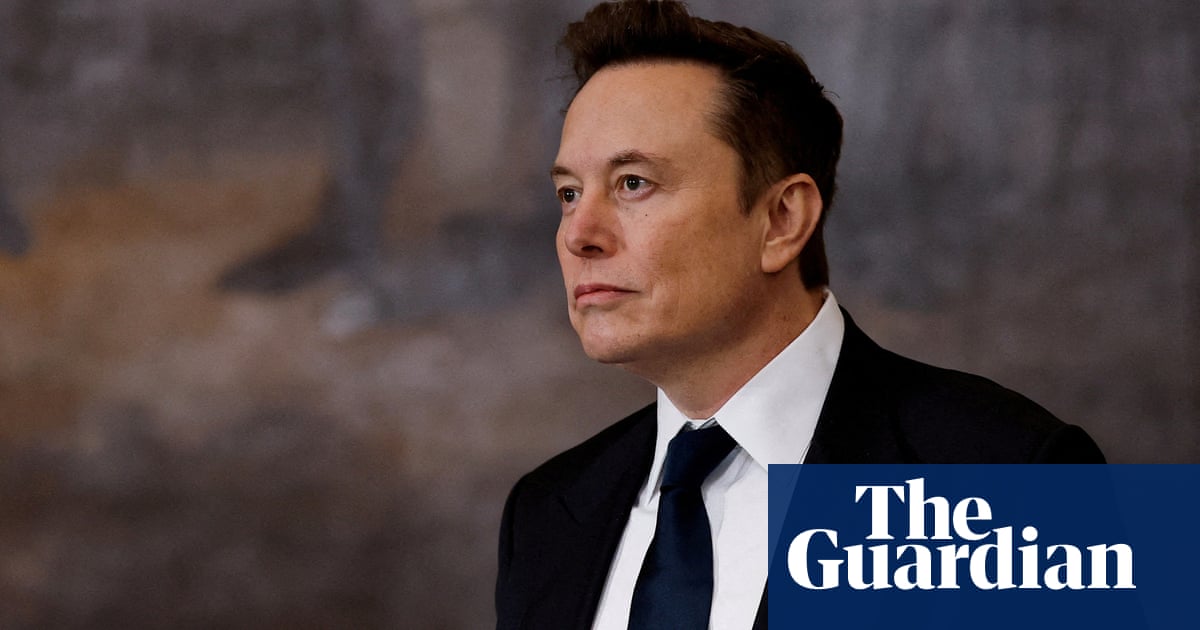Donald Trump’s favourite US president was William McKinley. Who he? In his inaugural address, Trump pledged to restore the name Mount McKinley to North America’s highest peak. It was an anti-woke dig at Barack Obama, who had given it the Alaskan native name of Denali. But why this idolatry?
The answer has since become clear. McKinley was the president (1897-1901) who introduced super-tariffs in his first year in office to protect the US’s post-recessionary manufacturers. Some were as high as 57%, and were seen as an alternative fundraiser to income tax. McKinley was also appealing to Trump for presiding over the founding of a hesitant US empire beyond the North American continent, one from which it has since retreated. Apart from that, the man was unostentatious, intelligent and impeccably polite, faults that Trump is clearly ready to forgive. His only carelessness was to be assassinated six months into his second term.
Trump has blatantly sought to mimic McKinley’s policies over the past fortnight. It is therefore worth studying what his hero actually did. Unlike Trump, McKinley made sure that his tariffs were approved by Congress. Indeed, the constitution then required it – and technically still does. He was emphatic that they should be based on treaties embracing reciprocity. They should be treaties.
In the event, the tariffs were not seen as critical to economic recovery. They were also blamed for a 25% rise in the cost of living. McKinley lost enthusiasm for them and became instead a champion of global free trade. He formed a group of nations to pursue an open-door policy, aimed at strengthening trade with China. He never saw tariffs as tactical weapons of foreign policy, nor used Trump’s description of his trading partners as “atrocious”.
As for seeking new colonies, historians regard McKinley as at best an accidental imperialist. A year after his 1897 tariffs were introduced, the US was faced with the effective collapse of the Spanish empire, with armed insurrections in Cuba and the Philippines. Like many Americans, McKinley welcomed the arrival of new and free states. But he was adamantly against aiding them in wars against Spain. His much-cited quote was that “war should never be entered upon until every agency of peace has failed”. He had seen the civil war, and never wanted to see another one.

Yet he was under pressure. This was a time when European nations were reaching their imperial limits. It was an opportunity for the US to spread its wings, and many of McKinley’s colleagues were eager for the challenge. Over the course of 1898, war fever against Spain became hysterical. The Hearst and Pulitzer newspapers daily demanded intervention in the Caribbean and the Pacific. Showered with petitions, Congress demanded, in effect, that McKinley declare war on Spain.
He did so under protest. His belligerent assistant navy secretary, the young Teddy Roosevelt, had already mobilised the navy, aiming it at Cuba and the Philippines. Roosevelt then formally resigned his position and led a volunteer regiment to fight in Cuba amid a blaze of publicity. He had accused McKinley of having “no more backbone than a chocolate eclair”. He was nonetheless chosen as McKinley’s vice-president in 1900.
These interventions did not result from any threat to US territory or sovereignty. They were naked acts of aggression. They were spectacularly egged on by Rudyard Kipling’s poem, The White Man’s Burden, directed at the Philippines and published in the New York Sun. It challenged America to take over from the British empire, to fight “the savage wars of peace” against “sloth and heathen folly”.
McKinley throughout was on the side of negotiation and peace. The Spanish war ended in a treaty signed in Paris in December 1898, which ceded America varying measures of control over Cuba, Puerto Rico, Guam and the Philippines. McKinley agreed with an anti-imperial majority in Congress that, once pacified, the US should deny any “intention to exercise sovereignty, jurisdiction, or control”. The government of the islands must be left to their people. The only “imperial” acquisition that McKinley did undertake was that of Hawaii, to prevent it falling into the hands of Japan.

On McKinley’s assassination in 1901, it was Roosevelt who assumed control of these territories, did not leave and retained them into the 20th century. It was also Roosevelt who backed rebels in seizing Panama from Colombia and giving the US control of the canal’s building and fortification. This was highly controversial. Roosevelt was challenged in Congress and by the New York Times for “an act of sordid conquest”. If Trump is seeking to emulate an earlier president, it is surely Roosevelt – described as the “bucking bronco” of American imperialism – he should be worshipping.
Almost every president comes to office asserting if not isolationism, then a refusal to commit money or resources to setting the world to rights. Yet all are seduced by the power of office and the language of the founding fathers. They come to see the US’s “manifest destiny” as being to champion freedom and democracy wherever it is threatened. From Woodrow Wilson to Franklin Roosevelt, from JFK to Johnson and the Bushes father and son, all came to see themselves as global crusaders for that cause.
In 2016, Trump refreshingly described the interventionism of his predecessors as a “total disaster”. He stuck to his guns and almost entirely avoided troop deployments during his first term of office. The world at least knew where it stood.
His emphasis on putting America’s interests first was repeated in 2024. But this time the prospect is uncertain. In his inaugural speech, he described his task as one that “expands our territory … and carries our flag into new and beautiful horizons”. He even used the fell phrase, manifest destiny, as being one he would “pursue … into the stars … to plant the Stars and Stripes on the planet Mars”. Not content with Mars, he has set his sights on Panama, Greenland and Gaza.
These territories might not match the ambitions of a Kipling or a Roosevelt, but Trump’s current intentions are hardly pacific. If he is to deify McKinley, he might first seek to find out a bit more about him.
-
Simon Jenkins is a Guardian columnist
-
Do you have an opinion on the issues raised in this article? If you would like to submit a response of up to 300 words by email to be considered for publication in our letters section, please click here.

 German (DE)
German (DE)  English (US)
English (US)  Spanish (ES)
Spanish (ES)  French (FR)
French (FR)  Hindi (IN)
Hindi (IN)  Italian (IT)
Italian (IT)  Russian (RU)
Russian (RU)  5 hours ago
5 hours ago
























Comments